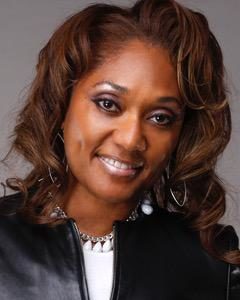Rev. Cynthia Carter Perrilliat, MPA, works to help medically underserved communities. She attended the University of Toledo, where she earned a bachelors degree in business administration. She then went on to earn her masters degree in public administration from Cal State University East Bay with a focus in organizational change and health care. Cynthia is currently the executive director of the Alameda County Care Alliance (ACCA). She also serves as a minister of the gospel at the Allen Temple Baptist Church in Oakland, California.
Debra L. Stang: Cynthia, thank you so much for taking the time to talk to me today. Can you tell me a little bit about the ACCA’s Advanced Illness Care Program ™?

Credit: phi.org
Cynthia Carter Perrilliat: The Advanced Illness Care Program ™ helps people with advanced illnesses and their caregivers. It addresses spiritual and emotional issues, advance care planning, physical and psychosocial health needs and caregiving needs. We empower patients and their caregivers and link them with trusted resources in the community.
Debra: What is a typical day like for you?
Cynthia: A typical day is filled with a broad spectrum of individuals, as well as meetings and administrative activities. Persons dealing with advanced illness, caregivers, as well as our amazing team, are the heart and soul of our work. Our collaborative partners, the Public Health Institute and U.C. Davis School of Nursing are also integral and involved in programmatic as well as evaluation functions. It’s all about communications, collaboration, community engagement and empowerment on multiple levels.
Debra: How do you go about reaching out to medically underserved communities?
Cynthia: Unfortunately, there is often a lack of trust between the medical community and many communities of color. However, the truth is we are all going to die someday and we need to help medically underserved communities navigate through advance care planning. The best way I know to do that is by approaching these communities with sincerity and honesty. Sometimes sharing a true story from your own past can help to break down barriers.
There is also a great need for health professionals of color. Sometimes it helps to bring in an intermediary like a faith leader. For instance, 87 percent of African Americans express some spirituality or faith, so getting black churches involved makes good sense.

Credit: mymaxng.com
Debra: What if your clients don’t identify with a faith base?
Cynthia: Our community of care is primarily African American, however, we embrace all persons no matter their race, religion, or sexual orientation.
Debra: What are some other services you offer?
Cynthia: Many of our clients have trouble making their way through the healthcare system. We provide trained lay people called care navigators who attend bi-weekly training sessions to help the clients find the resources they need. We also offer practical services like picking up groceries and preparing meals. Basically, we get to know our clients and identify their unique needs and then make it our business to put them in touch with helpers to meet those needs.
Read the conclusion of my interview with Rev. Cynthia Carter Perrilliat, MPA, next week.

 How Do You Reach Out to People in Medically Underserved Communities?
How Do You Reach Out to People in Medically Underserved Communities?


 John Mulaney’s “Funeral Planning” on Netflix: No Real Plan
John Mulaney’s “Funeral Planning” on Netflix: No Real Plan

 Composting Bodies Is Now Legal in a Dozen States
Composting Bodies Is Now Legal in a Dozen States














